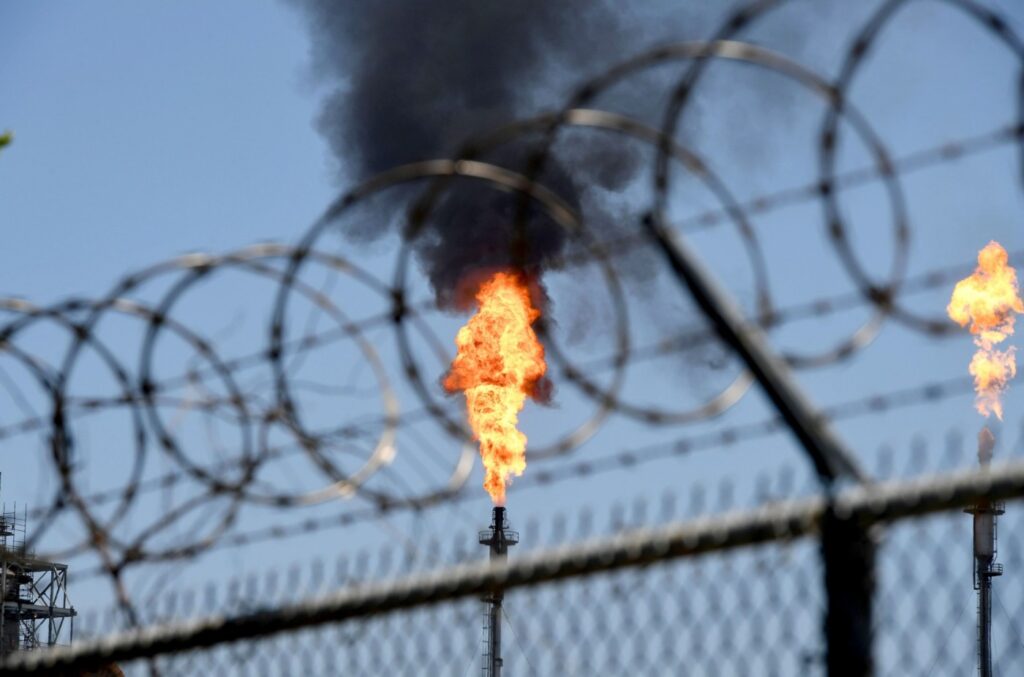
Airborne emissions linked to climate change and health problems aren’t always easy to see.
A new California law seeks to make those pollutants — and the companies emitting them — more visible to the public.
SB 253, which Gov. Gavin Newsom signed Oct. 7, is billed as a first-in-the-nation requirement for large corporations to publicly disclose their airborne pollutants on an annual basis.
“We need the full picture to make the deep emissions cuts that scientists tell us are necessary to avert the worst impacts of climate change,” the bill’s sponsor, Sen. Scott Wiener, D-San Francisco, said in a news release about SB 253, also known as the Climate Corporate Data Accountability Act.
The bill, which previously faltered in the Assembly, passed the Senate 27-8 and the Assembly 49-20 in September despite staunch opposition from business groups, including the California Chamber of Commerce.
“To be clear: This bill will not reduce emissions,” The chamber argued in a document posted on its website. “It is a costly reporting requirement that does not help us meet our climate goals.”
SB 253 “may result in large businesses ceasing their partnerships with small and medium-sized businesses, leaving these companies without the contracts that enable them to grow and employ more workers,” the chamber added.
The law applies to U.S.-based companies doing business in California that have annual revenues of $1 billion or more.
Starting in 2026, those companies — about 4,000 in total, according to California Environmental Voters — will have to disclose their emissions, which are broken down into three categories:
Emissions from company-owned sources.
Emissions caused indirectly by a company through its use of electricity.
Emissions by outside sources doing work on a company’s behalf.
Businesses “are responsible for a large share” of greenhouse gas emissions that cause climate change, with research showing that since 1988, 100 fossil fuel producers are responsible for 71% of greenhouse gas emissions worldwide, according to a nonpartisan state analyst’s report on SB 253.
Disclosing the third category of emissions, such as diesel exhaust from trucks ferrying goods from the ports of Los Angeles and Long Beach to Inland Empire warehouses, is “one of the reasons why I care so much about SB 253,” said Matt Abularach-Macias, deputy campaigns director for California Environmental Voters.
Diesel exhaust is blamed for the region’s poor air quality and is linked to cancer, asthma and other health problems.
“There hasn’t really ever been full transparency about … how much of a burden the Inland Empire is currently shouldering for the rest of the country’s economy because of the goods and logistics movement,” Abularach-Macias said.
“I think this will bring about the needed transparency to demonstrate the burden that we’re carrying in the Inland Empire.”
He added: “So much of the propaganda from the big polluters has made … the climate crisis an individual problem and has told the public that, you, individually, your consumption is responsible for the crisis.”
SB 253 can help change that narrative by putting the emphasis on corporate pollution, Abularach-Macias said. “If everyone believes that this is an individual problem, then policy solutions are going to reflect that,” he said.
“Whereas if we come to understand that this is a problem with certain people who are responsible for creating it, then I think policy solutions should shift and reflect that as well.”
Because the law only applies to businesses located in California, “this means that out-of-state and international companies can opt to simply ignore SB 253’s requirements,” CalChamber argued.
Related Articles
Long Beach mail-processing facility closing and eliminating 257 jobs
Amazon tests humanoid robot in warehouse automation push
Sprouts unveils state-of-the-art distribution center in Fullerton
“Therefore, the burden of this bill will fall squarely on California-based companies, giving out-of-state and foreign companies a market advantage, driving production out-of-state and increasing the cost of goods for California residents.”
It’s also hard to accurately measure the third type of emissions, the chamber said.
Responsibility for enforcing SB 253’s reporting requirements will fall to the California Air Resources Board, which will develop regulations on those requirements between now and 2026.
